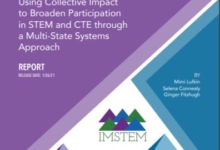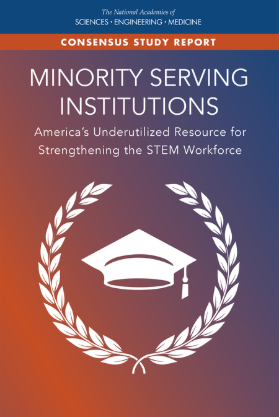There are roughly 700 Minority-Serving Institutions (MSIs) that produce one fifth of the nation’s Science, Technology, Engineering and Mathematics (STEM) bachelor’s degrees. Recognizing the critical role these MSIs can play in strengthening the STEM talent pipeline for nontraditional students and students of color, this report from the National Academies of Science, Engineering and Medicine identifies promising programs and strategies to increase the quantity and quality of MSI STEM graduates and conveys the importance of MSIs to stakeholders. The report was developed with input from a committee with representation from industry, education and workforce institutions and identified seven promising practices to strengthen the quality of STEM education, research and workforce preparation for MSIs learners:
- Dynamic, multilevel, mission-driven leadership;
- Institutional responsiveness to meet students where they are;
- Supportive campus environments;
- Tailored academic and social supports;
- Mentorship and sponsorships;
- Availability of undergraduate research experiences; and
- Mutually beneficial public-and private-sector partnerships.






